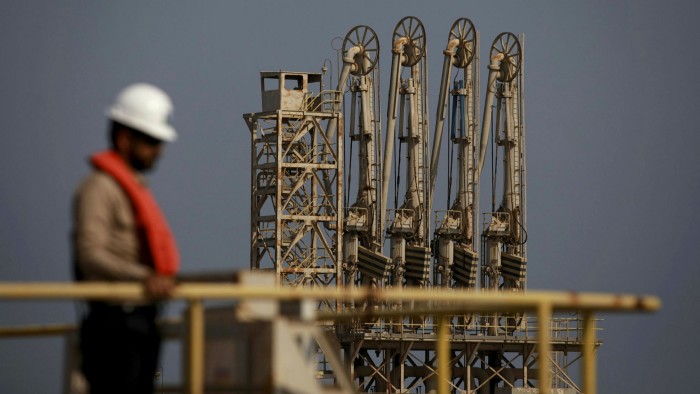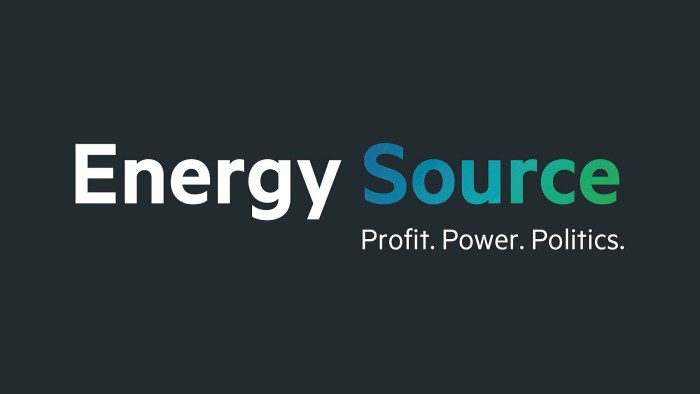Oil price rises above $70 after attacks on Saudi oil facilities

Simply sign up to the Oil & Gas industry myFT Digest -- delivered directly to your inbox.
Oil prices briefly rose above $70 a barrel for the first time in 14 months after Saudi Arabia, the world’s top oil exporter, said its energy facilities had been attacked on Sunday, targeting “the security and stability” of global supplies.
A drone attack from the sea on a petroleum storage tank at Ras Tanura, one of the largest oil shipping ports in the world, took place on Sunday morning, the kingdom said.
In the evening, shrapnel from a ballistic missile fell in Dhahran, where state oil company Saudi Aramco has its headquarters and near where thousands of employees and their families live.
While Saudi Arabia’s ministry of energy said the attacks “did not result in any injury or loss of life or property”, and a person familiar with the matter said no production had been affected, the attacks have still unsettled oil markets that have rebounded strongly in recent months.
Brent crude, the international benchmark, rose as much as 2.9 per cent to $71.38 a barrel on Monday morning in Asia while West Texas Intermediate, the US benchmark, rose by a similar amount to a high of $67.98 a barrel. Both commodities pulled back later on Monday, with Brent slipping to $68.77 and WTI inching lower to $65.49.
Yemen’s Iran-allied Houthi fighters claimed responsibility for the attacks and said they had also focused on military targets in the Saudi cities of Dammam, Asir and Jazan.
A Houthi military spokesperson said the group had fired 14 bomb-laden drones and eight ballistic missiles in a “wide operation in the heart of Saudi Arabia”.
Amrita Sen at Energy Aspects emphasised that while a direct hit on oil supplies appeared to have been avoided, the threat to the market would still be taken seriously by oil traders.
“The oil price was already on a strong footing after Saudi Arabia and Opec’s decision last week to keep restricting production,” she said.
Brent crude, the international oil benchmark, had risen close to $70 a barrel after the cartel and allies outside the group, including Russia, decided not to unleash a flood of crude on to the market.
Amid uncertainty about the oil market outlook as the coronavirus crisis continues to have an impact on crude demand, the group decided against raising production by 1.5m barrels a day from April.
Given the supply curbs, while the kingdom has the extra production capacity to tap into, “geopolitical threats to supply will add a premium to the price”, Sen added.
The kingdom’s state media outlet said earlier in the day that the Saudi-led military coalition confronting the Houthis had intercepted missiles and drones aimed at “civilian targets” without indicating their location.
Twice weekly newsletter

Energy is the world’s indispensable business and Energy Source is its newsletter. Every Tuesday and Thursday, direct to your inbox, Energy Source brings you essential news, forward-thinking analysis and insider intelligence. Sign up here.
The Eastern Province, where Dhahran is located, is where much of Saudi Aramco’s oil facilities are located. The attack is the most severe since September 2019.
At that time the kingdom was rocked by missile and drone fire that hit an important processing facility and two oilfields, temporarily shutting off more than half of the country’s crude output.
The Houthis have ramped up assaults on Saudi Arabia through airborne attacks and explosive-laden boats and mines in the Red Sea, laying bare the vulnerability of the country’s energy infrastructure despite the kingdom’s production prowess and its hold over the oil market.
“The frequency of these attacks is rising, even if the impact on energy infrastructure appears limited,” said Bill Farren-Price, a director at research company Enverus. “We know the capacity to cause serious damage exists, so this will boost the risk premium for oil.”
Additional reporting by Hudson Lockett in Hong Kong
Comments